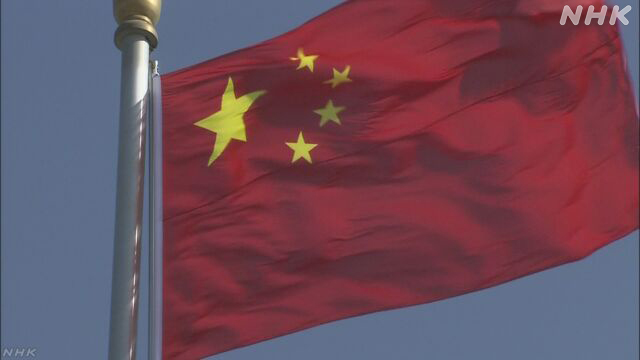The Japan government conveyed its concerns to the Chinese side over a plan to dilute the treated water accumulated at the Fukushima Daiichi Nuclear Power Plant and release it into the sea, which has been delayed by Chinese customs authorities due to the detention of seafood from Japan. Our policy is to call for a response based on scientific evidence.
The Chinese government has suggested tightening regulations on Japan food products over a plan to dilute the treated water accumulated at TEPCO's Fukushima Daiichi Nuclear Power Station to a substandard concentration and release it into the sea, and customs authorities in various regions have held seafood from Japan for inspection for a longer period of time, and exports have been delayed.
Chief Cabinet Secretary Matsuno pointed out on May 21, "If full radiological testing were to be introduced, it would go against the international movement toward deregulation and abolition of food imports from Japan."
And Japan government expressed its concerns to the Chinese side through diplomatic channels and told them to deal with it appropriately.
The government will urge China to take measures based on scientific evidence, stating that the safety of Japan food products has been scientifically proven and that the planned release of treated water meets international safety standards according to the IAEA = International Atomic Energy Agency report.
We will also strengthen the dissemination of information to the international community so that countries will not be misled by China's moves.
Japan Consul General urges Hong Kong Chief Executive to reconsider ban on seafood imports
Hong Kong's food sanitation authorities announced on May 12 that they would ban the import of seafood from 10 prefectures, including Fukushima and Miyagi, if the treatment water accumulated at the Fukushima Daiichi Nuclear Power Plant is diluted to a substandard concentration and released into the sea.
Consul General Kenichi Okada of the Japan Consulate General in Hong Kong held a meeting with Hong Kong's chief executive, Chief Executive Lee Jia-chao, on the 21st.
According to the Consulate General of Hong Kong, Consul General Okada strongly urged Hong Kong to reconsider the ban on the import of marine products from the 10 prefectures of Japan, stating that it is extremely regrettable.
On the other hand, according to the Hong Kong announcement, Chief Executive Lee said, "We must take measures to ensure food safety and the health of citizens in Hong Kong, and we will pay close attention to the development of the situation and maintain communication with the Japan side."
Hong Kong is the main export destination for agricultural, forestry and fishery products in Japan, and last year's export value reached 2.2086 billion yen, the second largest after China, of which marine products accounted for more than 755% of the total at 3.<> billion yen, so there are concerns about the impact.

